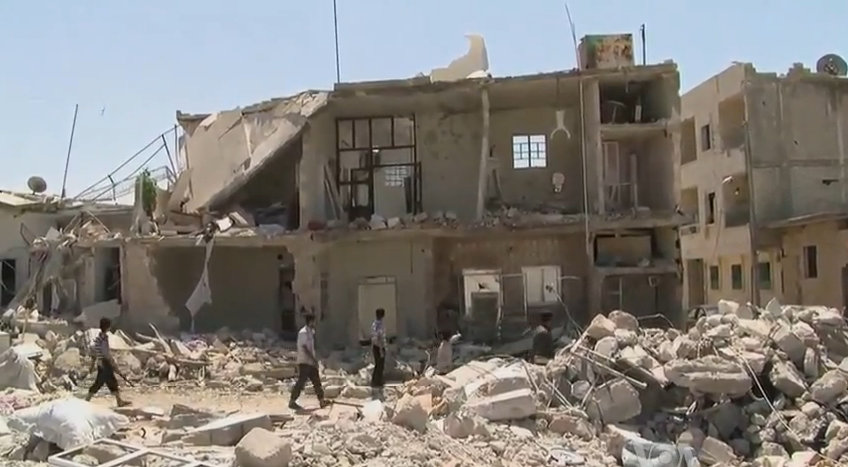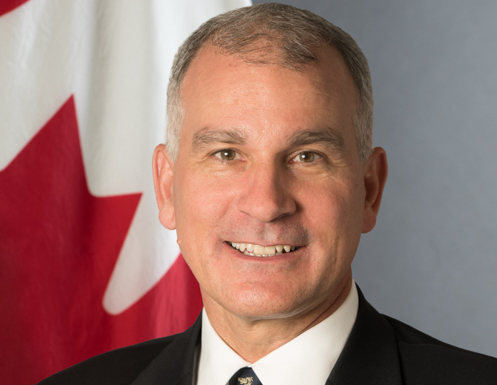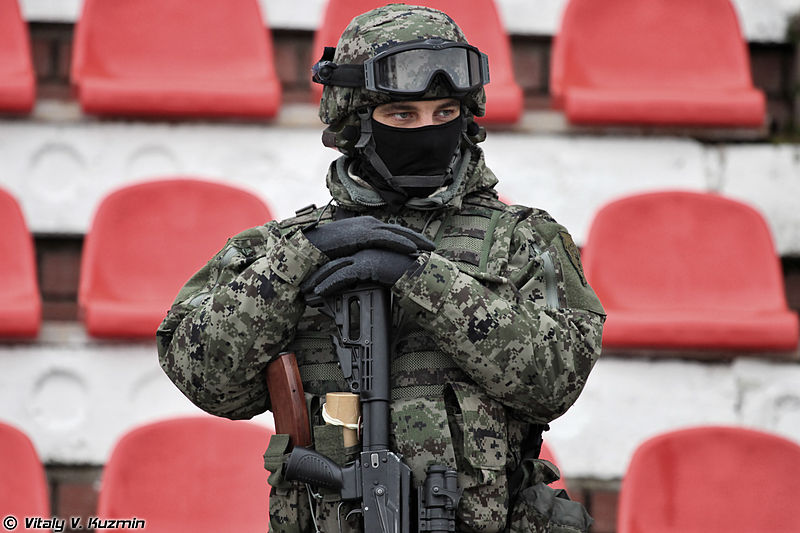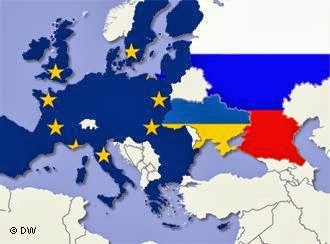With the Syrian Civil War reaching its fourth year, civil society organizations have started calling on Canada to lead the peace-building process. The Syria Campaign, a Syrian peace initiative backed by civil-society organizations representing 250 million people around the world, has appealed to Canada to lead an initiative to implement a no-fly zone over Syria.
“A country like Canada is perfectly suited for this, and this has to happen right now,” said Anna Nolan, an organizer with The Syria Campaign in New York. “Canada is playing a key role in the coalition [targeting ISIS], but the coalition isn’t dealing with the main source of the problem. Assad’s barrel bombs have been killing seven times more Syrians than anyone else. Canada should step up.”
In recent months, The Syria Campaign has been lobbying for a NATO country participating in the U.S. coalition to provide “urgent and immediate backing for the no-fly zone being advocated by dozens of Syrian non-combatant organizations.” These organizations include the Syrian Civil Defence Organization, the Kurdish Women’s Union, the Christian Assyrian Coordination Committees, and the Syrian Network for Human Rights.
Canada joined the U.S.-led coalition to combat ISIS last year, and currently has six CF-18s, an aerial refueller, two surveillance planes, and about 600 personnel involved in the air war, as well as 69 special forces training Kurdish fighters.
With the Liberal Party’s sweeping win at the polls last week, however, this commitment was given an expiry date. Hours after leading his party to victory, Prime Minister-designate Justin Trudeau confirmed he will withdraw Canadian fighter jets from the air strikes against the Islamic State.
“I committed that we would continue to engage in a responsible way that understands how important Canada has a role to play in the fight against ISIL, but [Barack Obama] understands the commitments I’ve made around ending the combat mission,” he told reporters in Ottawa last week.
Trudeau and the Liberal Party have also committed to bringing Canada within the folds of international institutions. In a recent op ed for the Huffington Post, the party leader made the case for a greater multilateral role for Canada, arguing that “to become, once again, an active and constructive member of the United Nations and other multilateral organizations would magnify Canada’s voice in international affairs.”
Some Canadian analysts and commentators agree that Canada should take its commitment past the military dimension. Many have indeed called for Canada to become a diplomatic leader in the crisis, including Kyle Matthews, the Senior Deputy Director of the Montreal Institute for Genocide and Human Rights Studies. “The time has come for this conflict to stop,” Matthews said, arguing that “Canada dreamed big in the last century… there is no reason why Canada can’t step up to the plate right now and be the voice for the millions of Syrians who are literally trapped in hell.”
Anna Nolan agrees: she argues that what has been missing from the no-fly zone initiative is “a NATO country willing to step up to break the logjam and take the lead in forging a resolve within NATO … for Assad’s immediate compliance with UNSC Resolution 2139” – and that Canada should be that country.
Other NATO members have started supporting a no-fly zone, albeit in various forms. Turkey “is ready for a limited zone around Aleppo” and is willing to employ its fighter jets to enforce and patrol it. The British and the French are more than open to the idea of a no-fly zone, and have said so. So have former Secretary of State Hillary Clinton, President Obama’s former ambassador to Syria Robert Ford, Obama’s just-resigned anti-ISIS coalition leader General John Alan, and many more.
Under a no-fly zone, unauthorized aircraft are prohibited entry into a specified area and force or the threat of force is used to deter violations. The creation of a no-fly zone is a key step toward creating a safe zone below. To date, the most serious discussion of establishing a safe zone occurred in July 2015 during U.S.-Turkish negotiations for American use of Incirlik airbase.
The introduction of Russian forces into Syria, however, complicates the situation. In addition to engaging in air strikes against rebel forces who oppose Assad, Russia is also reportedly set to supply advanced anti-aircraft missile systems to Syria, which would make the risks to coalition aircraft enforcing a no-fly zone even more acute.
Despite all this, former special assistant to President Obama Dennis Ross recently outlined a plan for a no-fly zone in Syria. Premised on “sharing the burden … but also guided by the logic of leverage”, the model envisions Turkey and the Gulf States providing the ground forces and paying for the relief and other activities conducted within the safe area, with North American and European involvement focusing on providing air cover. Provided all parties agreed and were able to work out the terms, they “could tell Putin privately in the kind of language he comprehends: don’t test the safe haven.” This is the kind of initiative many are calling on Canada to take the lead on.
The recent federal election has undoubtedly brought the Syrian Civil War and the resulting refugee crisis to the foreground in Canadian politics. Leaders from all parties have advocated for a new refugee policy. The recent drowning of a young Syrian boy on his way to Canada with his family further heightened attention to the country’s contributions.
But some argue that Canada’s focus on Syrian refugees comes at the expense of attention paid to other facets of the issue. “It is great that Canadians have finally started talking about refugees, but we have not heard anyone from any of the three parties talking about why all these Syrians are fleeing, and where the refugees are coming from,” said Faisal Alazem, of the Syrian Canadian Council. “It is from Assad’s bombing. That is the main cause.”
At bare minimum, says Kyle Matthews, Canada should “invoke the Responsibility to Protect and begin building the international political will among like-minded nations to establish humanitarian safe zones within Syria.”
With Russia’s recent entry into the Syrian air war, the conflict in Syria is far from over. Judging by its role in the past election, it will also continue to be a focal point in debates about Canada’s foreign policy. It is up to the Trudeau’s Liberal majority government government to determine what direction they will take the country in.




